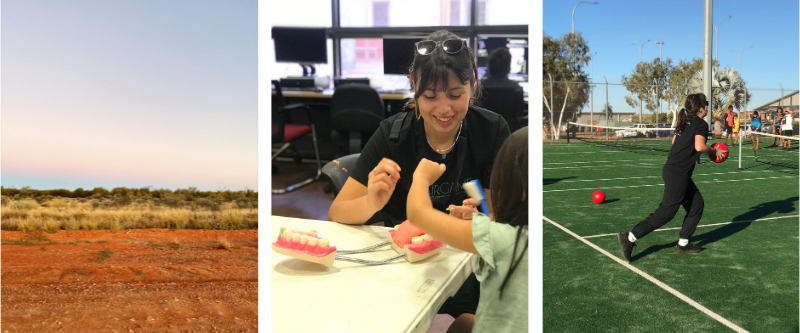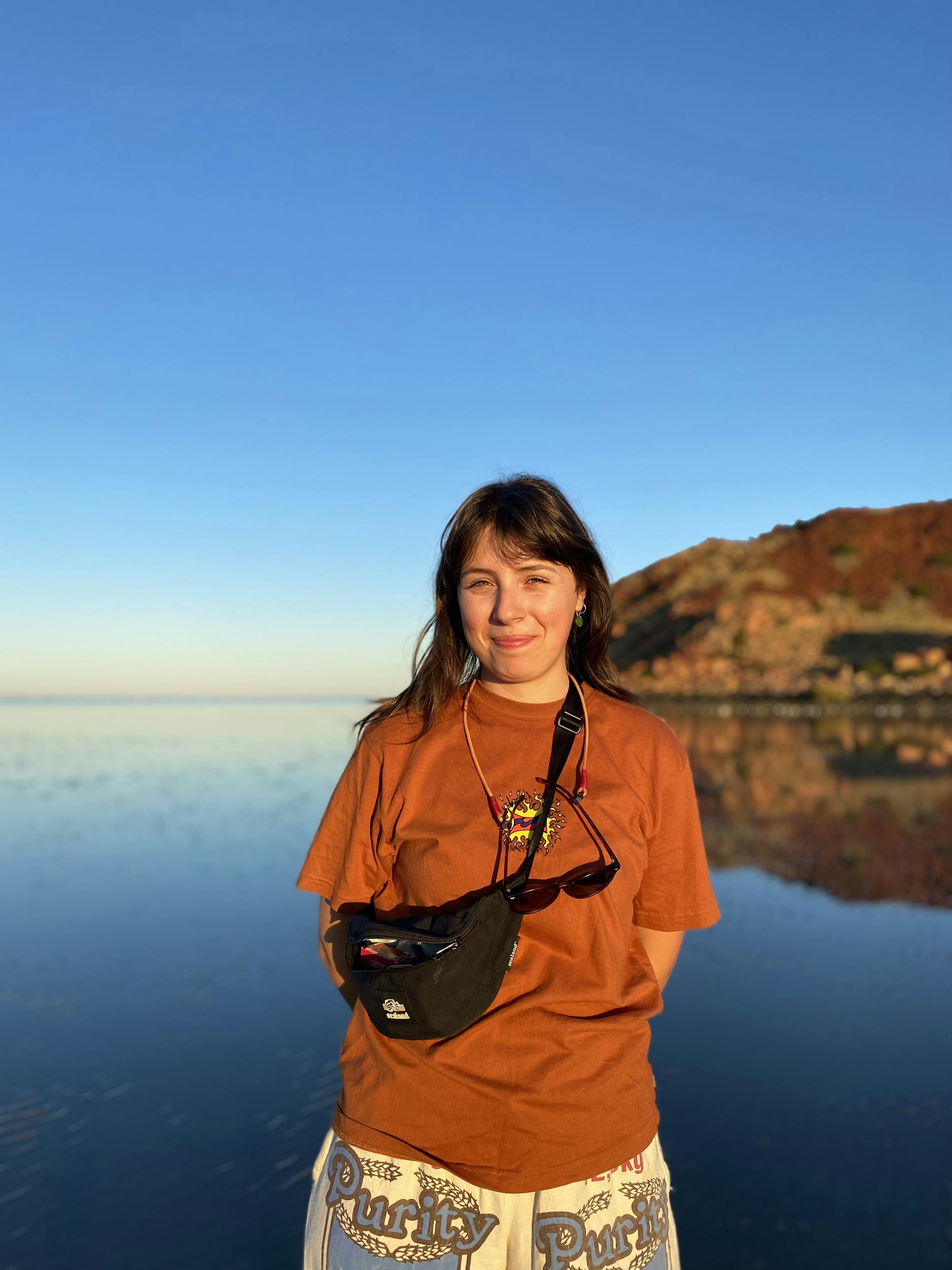Marina du Toit is a UWA Biomedicine student who recently took health messages to regional communities while helping non-profit organisation, Fair Game, strengthen their volunteer program.
Through her McCusker Centre for Citizenship internship with Fair Game, Marina, who is working towards a double major in Aboriginal Health and Wellbeing and Anatomy and Human Biology, was part of three visits to the remote communities of Parnngurr/Jigalong, Roebourne, and Balgo/Mulan.
“I applied for this internship after having an awesome experience volunteering in Halls Creek through UWA last year, and wanting to learn more about what it was like living in rural WA,” Marina said.
“Through my internship, I was able to teach children in the communities some key health messages in an entertaining and engaging way, but the greatest impact of my project was to help strengthen Fair Game’s platform for volunteers to be able to serve communities’ needs to the best of their abilities.
“Having been in the Kimberley last year led me to believe that I already knew what rural WA life was like – I quickly found out how different each community is to one another and that they all have their own nuances.
“It was a great challenge to come up with a broad evaluation form that can be applied to all volunteers, when the communities visited by Fair Game are so different not only from each other, but also different each time they visit them,” she said.

Sophia Colbourne, Marina’s supervisor with Fair Game, said that Marina’s contribution had made a difference that would assist the organisation with its goals.
“Fair Game’s overarching aim is realising an equitable, healthier and sustainable Australia - we achieve this within communities by recycling sports equipment to facilitate fitness and wellbeing programs, while simultaneously empowering our volunteers through a training program that increases knowledge and capacity.
“Marina's research helped us understand the impact of the volunteer training and community visits to build these capabilities and abilities, and how they can best help meet needs in communities.
“We will continue to utilise the evaluation forms Marina has helped develop and are excited to observe their impact for Fair Game moving forward," she said.
Marina reflected on the unique learning about community and regional work she gained through the experience:
“The internship opened my eyes to both the beauty and hardship that comes with working and living rurally in WA, and I have gained a lot of respect for people who are dedicated to closing the gap and maintaining strong connection to country for these communities.
“Working in rural and remote regions comes with challenges in having to be resourceful and culturally and socially sensitive to community norms; I think this experience has allowed me to recognise a greater skill set of mine that hasn’t needed to be tested in Perth.
“As a hopeful medical student, I want to someday provide holistic care; undertaking this internship allowed me to experience a glimpse of what my future patients’ lives could look like in a regional setting and allowed me to hopefully create a more informed health approach.”

